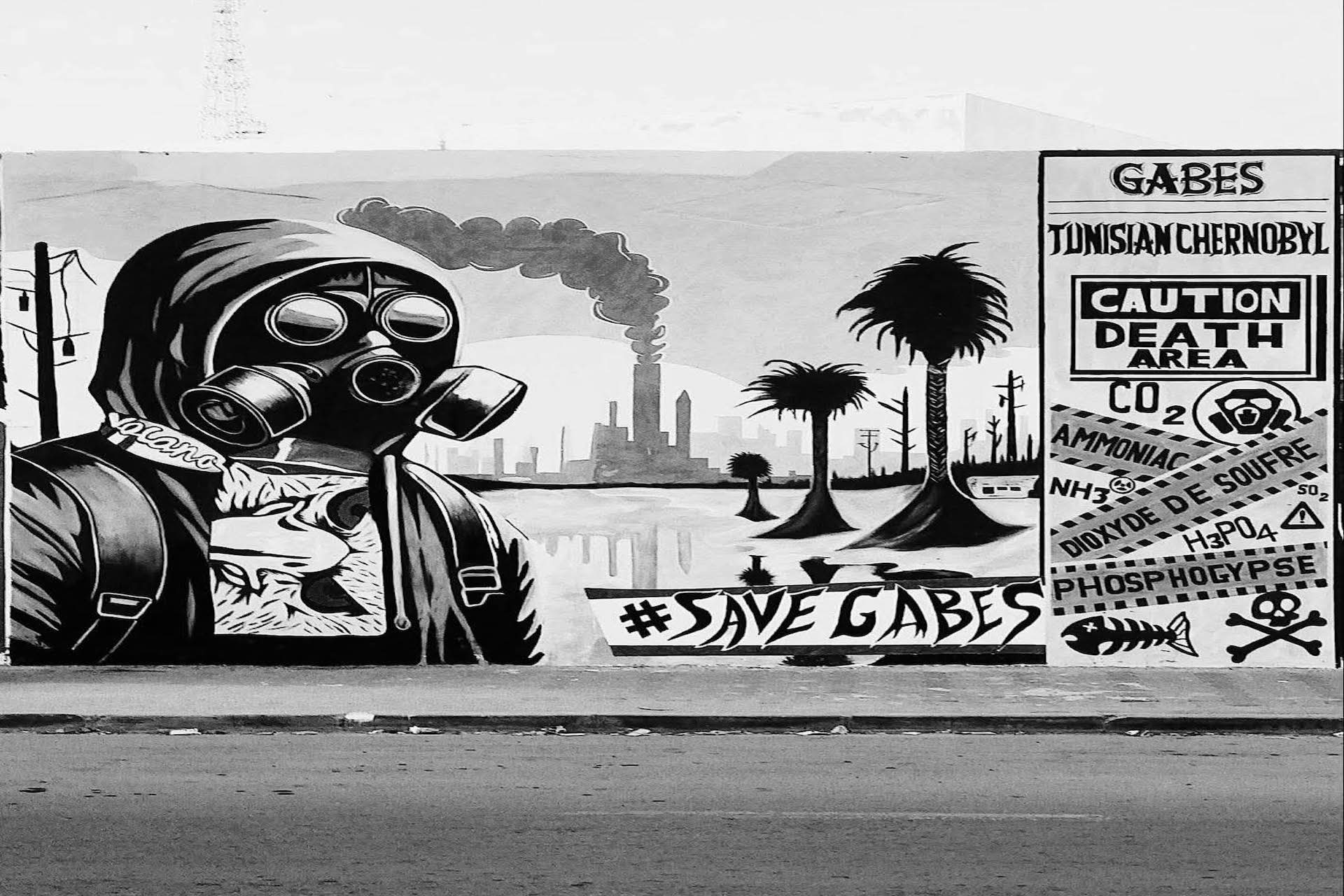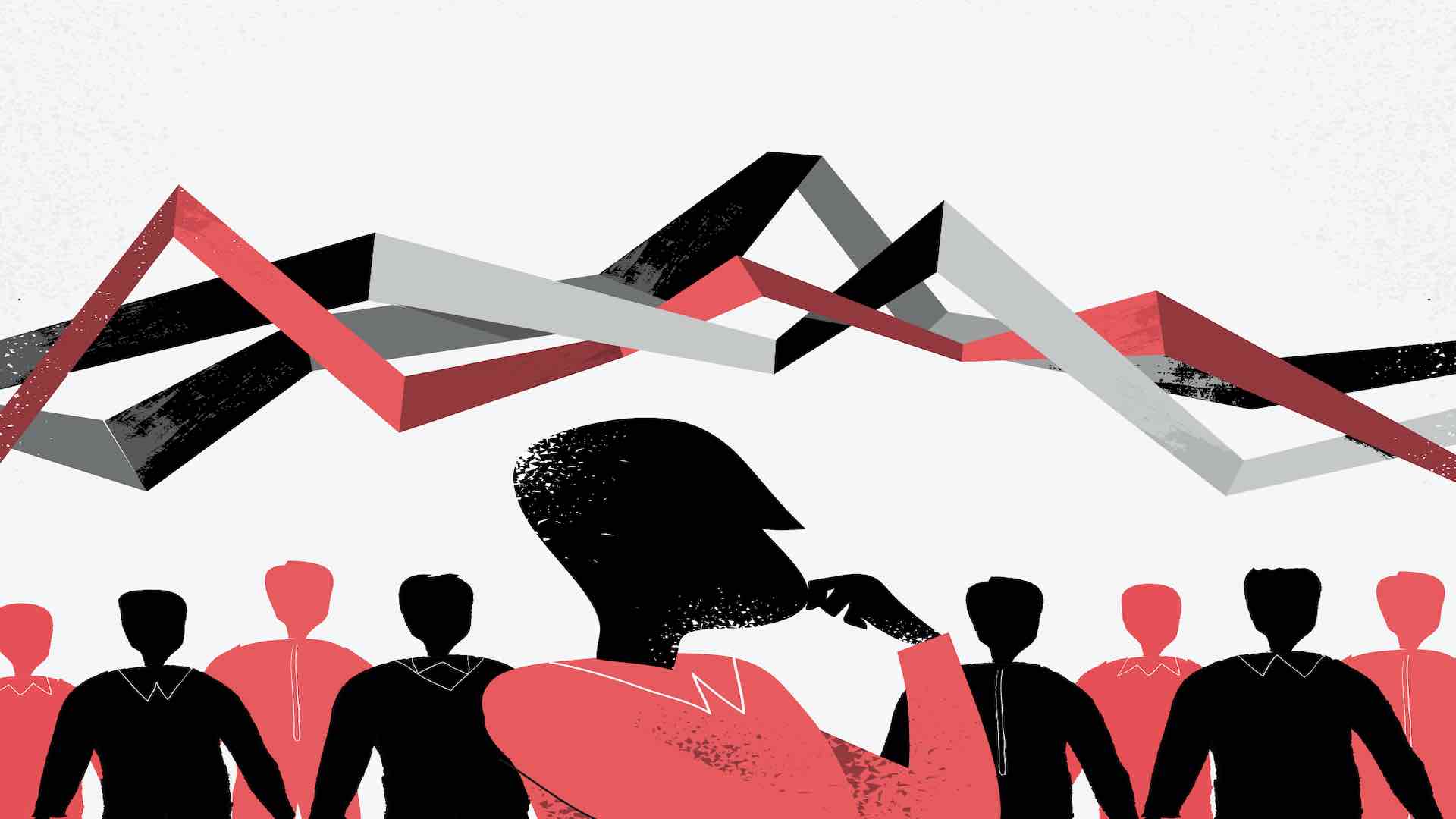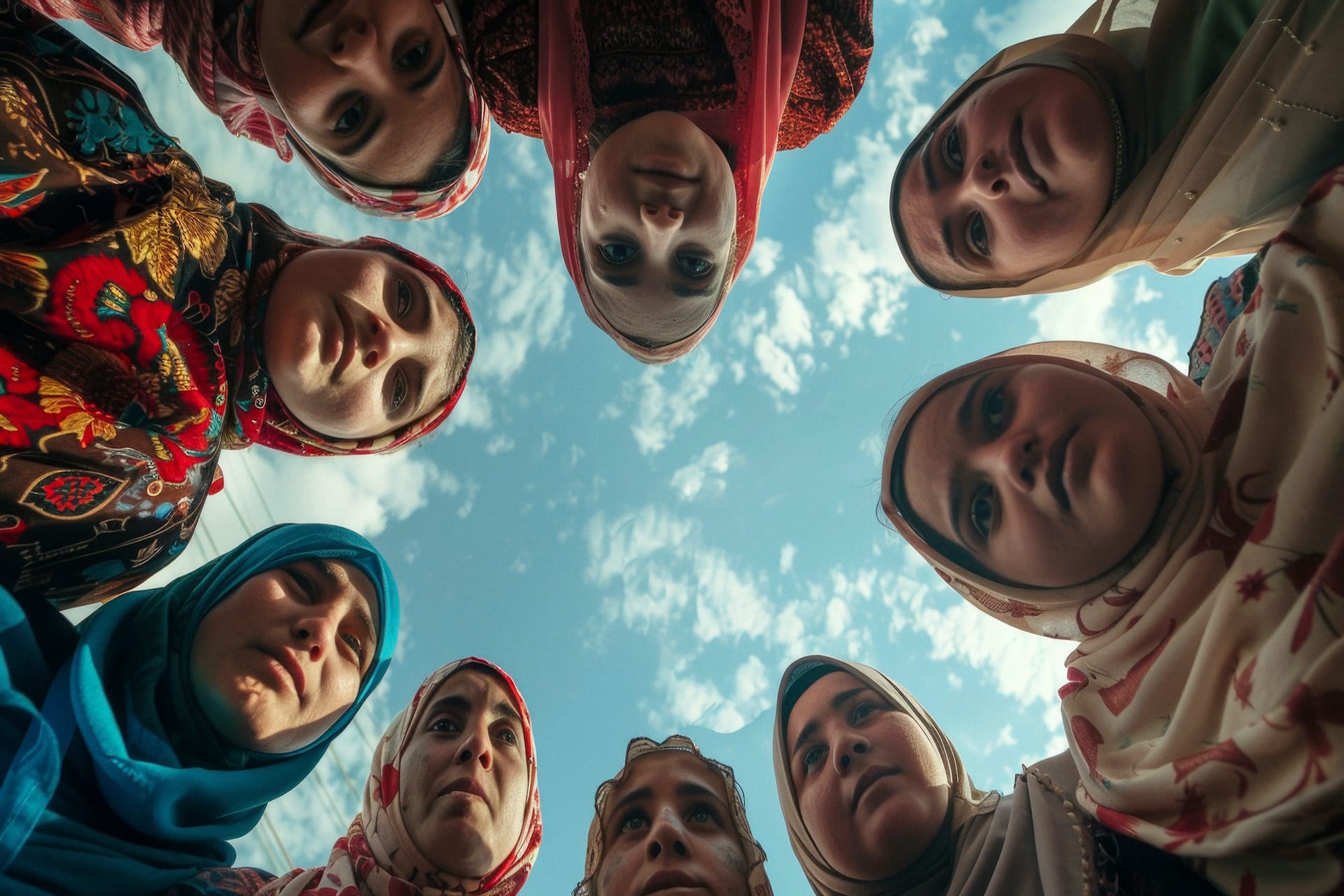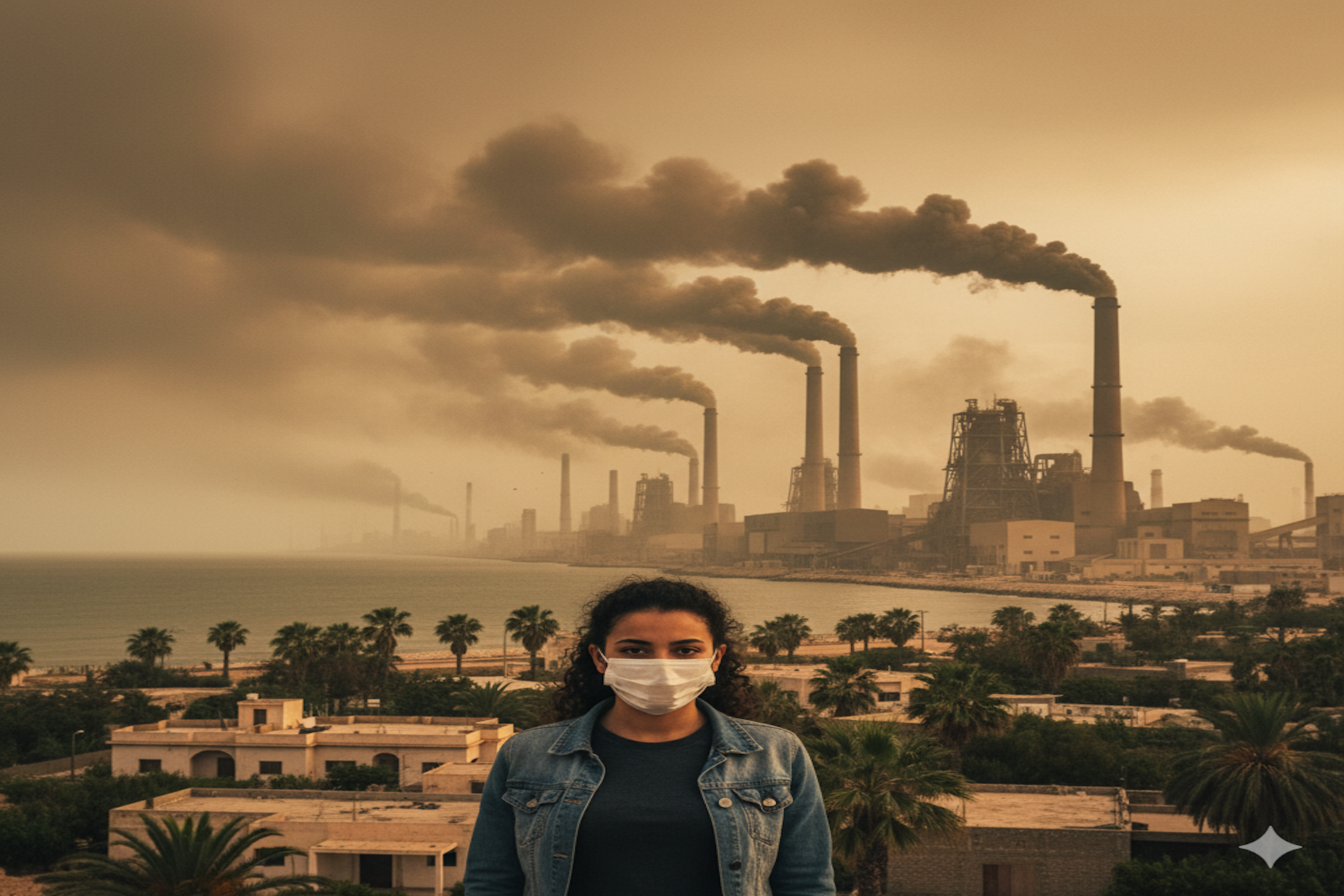A poisoned sky in southern Tunisia
The people of Gabes, a coastal city once known for its palm oases and turquoise gulf, now live under a grey, suffocating haze.
In recent weeks, hospitals in the region have reported an alarming rise in poisoning and respiratory cases, many involving children. The stench of chemicals is constant; fish no longer live near the shore. The air burns, the soil is dead.
According to a Le Monde report published on October 22, 2025, residents have been exposed to toxic emissions from factories belonging to the Tunisian Chemical Group (GCT) — the state-owned giant processing phosphate rock into fertilizer. Local doctors describe “waves of nausea, dizziness, and fainting” among patients following each release of factory smoke.
The government’s silence speaks louder than words
Despite the visible suffering, the government in Tunis has remained almost completely silent. President Kais Saied, who once condemned decades of “industrial crime” in Gabes, now defends the same industry as a “pillar of national sovereignty.”
Citizens interpret this as betrayal. While officials promise investigations, no meaningful inspection, suspension, or compensation has followed. Environmental activists argue that the administration prioritizes production and exports over human life.
“They are poisoning us to protect their profits,” says Henda, a Gabes resident interviewed by TikToxTunisia. “When children faint on their way to school, that’s not an accident — it’s a policy.”
A city turned sacrifice zone
Gabes is home to one of Tunisia’s largest industrial complexes, producing chemical fertilizers and phosphoric acid. For decades, local NGOs and scientists have warned that the plants discharge fluorine, sulfur dioxide, and heavy metalsdirectly into the air and the sea.
Satellite imagery shows a 30 km² “industrial cloud” forming daily over the city. Marine biodiversity in the gulf has collapsed, and agricultural output has dropped dramatically due to acid rain and soil contamination.
A 2023 report by the Association for the Protection of Gabes Environment (APGE) found fluoride levels in groundwater five times higher than WHO standards. Yet the Ministry of Environment has neither published updated toxicity data nor conducted transparent health risk assessments.
Health emergency ignored
Pediatric wards in Gabes’ regional hospital are overwhelmed. Nurses describe a surge of cases with breathing difficulties, vomiting, and unexplained rashes.
Environmental doctors link these symptoms to chronic exposure to hydrogen fluoride and sulfur gases.
Instead of sending medical aid, the Ministry of Health reportedly told local authorities to “avoid alarming the public.” That silence has become deadly.
In interviews with Le Monde, union representatives from the Tunisian General Labour Union (UGTT) accused the government of “criminal negligence.” The UGTT even called for a general strike on October 21 — paralyzing the region and forcing international media to notice what officials refused to address.
Kais Saied’s double narrative
Kais Saied’s presidency began with a promise to fight corruption and defend the people. But the situation in Gabes exposes the disconnect between rhetoric and reality.
While the president blames foreign interference for Tunisia’s economic struggles, his own administration continues to expand phosphate exports to Europe and Asia — the same markets that demand “green fertilizer” but ignore how it is produced.
Critics argue that Saied has concentrated power while dismantling institutions that could hold industry accountable. Environmental laws remain unenforced; whistle-blowers face retaliation.
“The regime claims to defend national dignity,” says political analyst Amira Ben Mabrouk, “yet it allows citizens to breathe poison. That’s not sovereignty — it’s surrender to the same elite interests it claims to oppose.”
Digital outrage: TikTok and X explode
The Gabes crisis has spread far beyond Tunisia’s borders through social media activism. Videos tagged #GabesToxicAir, #SaveTunisia, and #StopThePoison have reached hundreds of thousands of views on TikTok and X (formerly Twitter).
Creators film the yellow-grey sky, dead fish washed ashore, and children wearing masks to school. These clips have become rallying points for Tunisians abroad, many of whom left the country due to pollution-related illnesses.
On TikTok and X , engagement has skyrocketed as users demand accountability from ministers and CEOs of the phosphate conglomerate. Several comments call for international sanctions on companies responsible for ecological damage.
مسيرة اليوم في #قابس جنوب #تونس وُصفت بالأكبر في تاريخ المدينة تطالب بوقف المجمع الكيميائي الذي فتك بالأرواح طيلة عقود وقتل الواحة pic.twitter.com/aS1T0dbWUG
— Wejdene Bouabdallah 🥏 (@tounsiahourra) October 21, 2025
Global hypocrisy and Western complicity
Much of Tunisia’s phosphate production feeds fertilizer markets in Europe — particularly in France, Spain, and Italy.
Consumers there rarely realize that “cheap fertilizer” often comes at the expense of Tunisian lives and ecosystems.
Environmental groups accuse European partners of turning a blind eye to the environmental abuses they indirectly fund. The EU’s trade policies reward production output, not sustainability or human rights compliance.
As one activist put it:
“Europe banned dirty fertilizer plants at home, but buys it from countries where people have no choice but to breathe the waste.”
A new generation of Tunisian eco-activists
Young Tunisians are refusing to stay silent. Grassroots movements such as Stop Pollution Gabes and Youth for Climate Tunisia organize marches, online petitions, and legal complaints. Many activists are under 25 — the same generation that led the 2011 revolution.
They use the same digital tools — TikTok, Instagram, Telegram — that once mobilized political change.
This time, their fight is not just for democracy, but for the right to breathe.
Despite intimidation, these activists persist. Some have been summoned by police for “spreading false information,” but their videos continue to circulate. They call themselves “the lungs of Gabes.”
Environmental justice is political justice
What is happening in Gabes is not a local accident. It is a mirror reflecting Tunisia’s national crisis — a failure of governance, transparency, and respect for life.
When the state chooses industrial profit over public health, it violates its own constitution.
When it silences doctors and journalists, it deepens the wound.
And when it ignores the cries of poisoned citizens, it forfeits moral legitimacy.
The path forward: accountability or collapse
Tunisia cannot afford to lose another generation to disease and despair.
International pressure is growing: environmental NGOs are calling for an independent investigation under UN oversight, as well as a compensation fund for victims of industrial pollution.
Experts urge Tunisia to diversify its economy away from raw phosphate exports and to adopt cleaner technologies. But none of this will happen unless citizens keep demanding accountability — loudly, relentlessly, online and offline.
Conclusion: A call to breathe, a call to act
Gabes is more than a tragedy; it is a warning.
If the government continues to ignore science and silence dissent, Tunisia’s “chemical heart” will keep poisoning not only its people but its future.
The world must pay attention.
Share this story. Demand answers.
Because silence kills — and the people of Gabes have been silent for too long.













